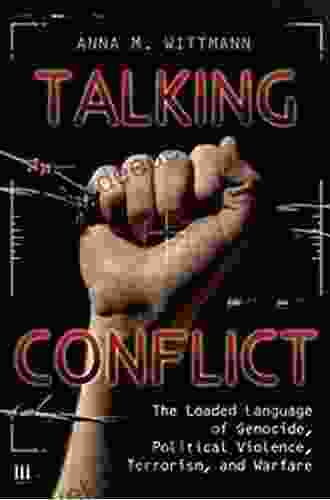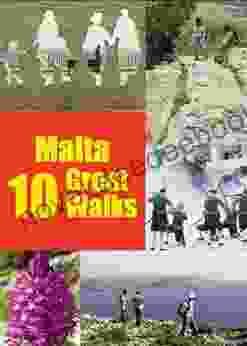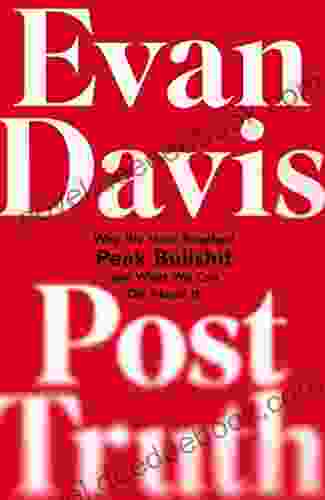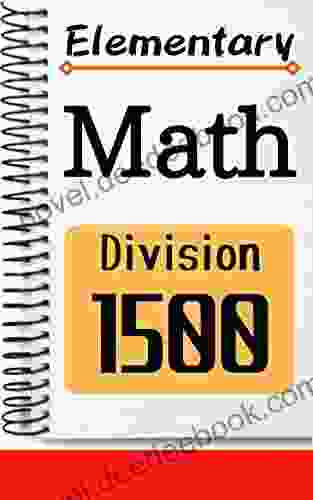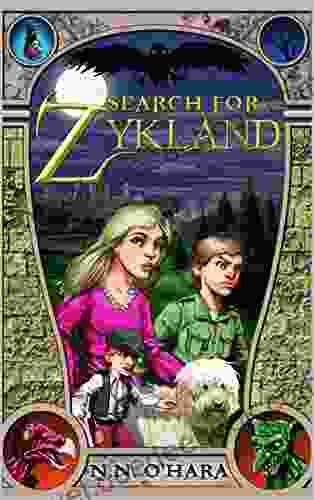The Loaded Language of Genocide, Political Violence, Terrorism, and Warfare

The language we use to talk about genocide, political violence, terrorism, and warfare has a powerful impact on how we understand these events. This is because language is not simply a neutral means of communication; it is also a way of shaping our thoughts and perceptions.
5 out of 5
| Language | : | English |
| File size | : | 1190 KB |
| Text-to-Speech | : | Enabled |
| Screen Reader | : | Supported |
| Enhanced typesetting | : | Enabled |
| Word Wise | : | Enabled |
| Print length | : | 386 pages |
The words we choose to describe an event can frame it in a particular way, highlighting certain aspects and obscuring others. For example, the term "genocide" is often used to describe the mass killing of a particular group of people, but it can also be used to describe the destruction of a culture or way of life. Similarly, the term "terrorism" is often used to describe violence carried out by non-state actors, but it can also be used to describe violence carried out by states against their own citizens.
The way we talk about these events can also have a significant impact on our emotional response to them. For example, the use of graphic language to describe the violence of genocide can evoke feelings of horror and revulsion, while the use of more neutral language can make it seem less shocking or disturbing.
It is important to be aware of the power of language and to use it carefully when discussing genocide, political violence, terrorism, and warfare. The words we choose can have a significant impact on how we understand these events and how we respond to them.
Genocide
The term "genocide" was coined by Raphael Lemkin in 1944 to describe the Nazi Holocaust. He defined genocide as "the destruction of a nation or an ethnic group." Genocide is a crime under international law, and it is defined as the intentional killing of a group of people based on their race, religion, ethnicity, or nationality.
The language used to describe genocide is often very loaded. For example, the term "holocaust" is often used to describe the Nazi genocide of the Jews, and it carries with it a strong sense of horror and revulsion. Similarly, the term "ethnic cleansing" is often used to describe the mass killing of a particular ethnic group, and it suggests that the perpetrators are trying to purify their country of an unwanted element.
The language used to describe genocide can also have a significant impact on our understanding of the event. For example, the term "genocide" is often used to describe the mass killing of a particular group of people, but it can also be used to describe the destruction of a culture or way of life. This broader definition of genocide can make it more difficult to identify and prevent genocide, as it can be more difficult to prove that a particular action is intended to destroy a culture or way of life.
Political Violence
Political violence is any violence that is carried out for political purposes. This can include violence carried out by states against their own citizens, violence carried out by non-state actors against states, or violence carried out by non-state actors against other non-state actors.
The language used to describe political violence is often very loaded. For example, the term "terrorism" is often used to describe violence carried out by non-state actors, and it carries with it a strong sense of fear and revulsion. Similarly, the term "insurgency" is often used to describe violence carried out by non-state actors against a state, and it suggests that the perpetrators are trying to overthrow the government.
The language used to describe political violence can also have a significant impact on our understanding of the event. For example, the term "terrorism" is often used to describe violence carried out by non-state actors, but it can also be used to describe violence carried out by states against their own citizens. This broader definition of terrorism can make it more difficult to identify and prevent terrorism, as it can be more difficult to determine whether a particular action is intended to terrorize the population.
Terrorism
Terrorism is the use of violence or the threat of violence to achieve political goals. Terrorism can be carried out by states against their own citizens, by non-state actors against states, or by non-state actors against other non-state actors.
The language used to describe terrorism is often very loaded. For example, the term "terrorism" is often used to describe violence carried out by non-state actors, and it carries with it a strong sense of fear and revulsion. Similarly, the term "insurgency" is often used to describe violence carried out by non-state actors against a state, and it suggests that the perpetrators are trying to overthrow the government.
The language used to describe terrorism can also have a significant impact on our understanding of the event. For example, the term "terrorism" is often used to describe violence carried out by non-state actors, but it can also be used to describe violence carried out by states against their own citizens. This broader definition of terrorism can make it more difficult to identify and prevent terrorism, as it can be more difficult to determine whether a particular action is intended to terrorize the population.
Warfare
Warfare is the use of armed force to achieve political goals. Warfare can be carried out between states, between non-state actors, or between states and non-state actors.
The language used to describe warfare is often very loaded. For example, the term "war" is often used to describe a conflict between two or more states, and it carries with it a strong sense of violence and destruction. Similarly, the term "insurgency" is often used to describe a conflict between a state and a non-state actor, and it suggests that the non-state actor is trying to overthrow the state.
The language used to describe warfare can also have a significant impact on our understanding of the event. For example, the term "war" is often used to describe a conflict between two or more states, but it can also be used to describe a conflict between a state and a non-state actor. This broader definition of war can make it
5 out of 5
| Language | : | English |
| File size | : | 1190 KB |
| Text-to-Speech | : | Enabled |
| Screen Reader | : | Supported |
| Enhanced typesetting | : | Enabled |
| Word Wise | : | Enabled |
| Print length | : | 386 pages |
Do you want to contribute by writing guest posts on this blog?
Please contact us and send us a resume of previous articles that you have written.
 Book
Book Page
Page Chapter
Chapter Story
Story Paperback
Paperback E-book
E-book Magazine
Magazine Sentence
Sentence Bookmark
Bookmark Shelf
Shelf Bibliography
Bibliography Foreword
Foreword Preface
Preface Synopsis
Synopsis Annotation
Annotation Scroll
Scroll Codex
Codex Classics
Classics Dictionary
Dictionary Narrator
Narrator Character
Character Resolution
Resolution Librarian
Librarian Catalog
Catalog Borrowing
Borrowing Stacks
Stacks Archives
Archives Periodicals
Periodicals Study
Study Research
Research Scholarly
Scholarly Reserve
Reserve Academic
Academic Journals
Journals Literacy
Literacy Study Group
Study Group Dissertation
Dissertation Awards
Awards Book Club
Book Club Theory
Theory John Mayo
John Mayo Latanja Fleming
Latanja Fleming Ronald Turnbull
Ronald Turnbull Stuart Griffiths
Stuart Griffiths W J O Reilly
W J O Reilly Steven Brown
Steven Brown Nancy Naigle
Nancy Naigle Mark Johnson
Mark Johnson Mateus Batista
Mateus Batista Tom Benson
Tom Benson Steve N Lee
Steve N Lee Thomas Singer
Thomas Singer Louise Simard
Louise Simard Tim Dressen
Tim Dressen Pamela Geller
Pamela Geller Georgios Kourogiorgas
Georgios Kourogiorgas Penelope Lively
Penelope Lively Joe Penhall
Joe Penhall John P Cann
John P Cann Howard Jones
Howard Jones
Light bulbAdvertise smarter! Our strategic ad space ensures maximum exposure. Reserve your spot today!
 Glenn HayesFollow ·14.9k
Glenn HayesFollow ·14.9k Jim CoxFollow ·14.4k
Jim CoxFollow ·14.4k Roberto BolañoFollow ·19.8k
Roberto BolañoFollow ·19.8k John ParkerFollow ·6.5k
John ParkerFollow ·6.5k Corey HayesFollow ·3.1k
Corey HayesFollow ·3.1k Jackson BlairFollow ·5.3k
Jackson BlairFollow ·5.3k David BaldacciFollow ·9.9k
David BaldacciFollow ·9.9k Isaiah PriceFollow ·7.8k
Isaiah PriceFollow ·7.8k

 Bryce Foster
Bryce FosterPerforming Asian American Women On Screen And Scene
The representation of Asian American women...
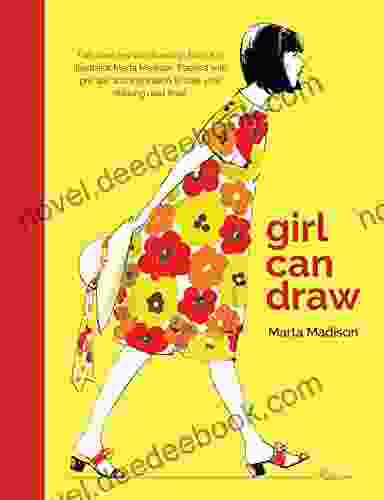
 Frank Mitchell
Frank MitchellGirl Can Draw: A Spirited and Inspiring Play by Joe...
Prologue In the realm of...
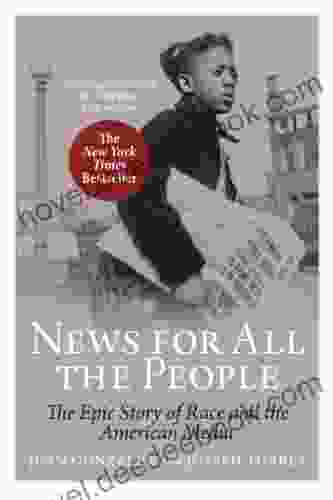
 Marc Foster
Marc FosterThe Epic Story of Race and the American Media: A Journey...
From the Shadows of Slavery to the Dawn of...

 Demetrius Carter
Demetrius CarterThe Ultimate Guide to Hiking West Virginia: Discover the...
West Virginia, often referred to as...

 Isaiah Price
Isaiah PriceThe Ten Step Guide on How to Become Famous: Unleash Your...
In the captivating world of entertainment...
5 out of 5
| Language | : | English |
| File size | : | 1190 KB |
| Text-to-Speech | : | Enabled |
| Screen Reader | : | Supported |
| Enhanced typesetting | : | Enabled |
| Word Wise | : | Enabled |
| Print length | : | 386 pages |


